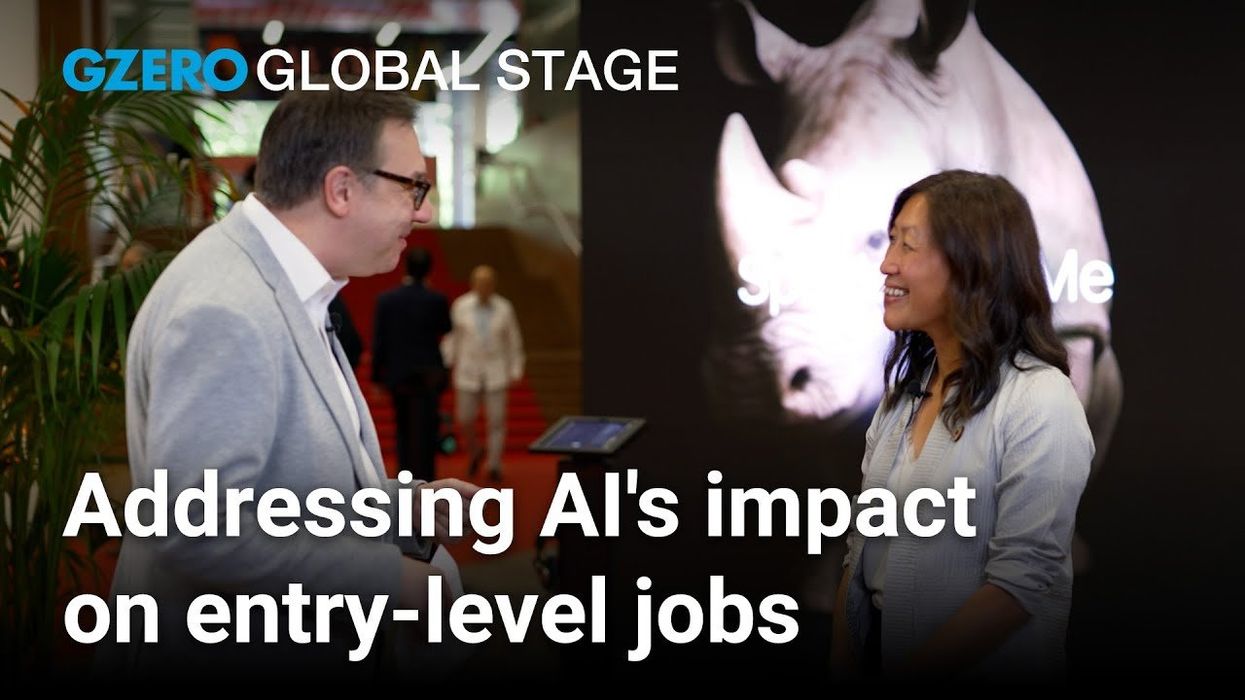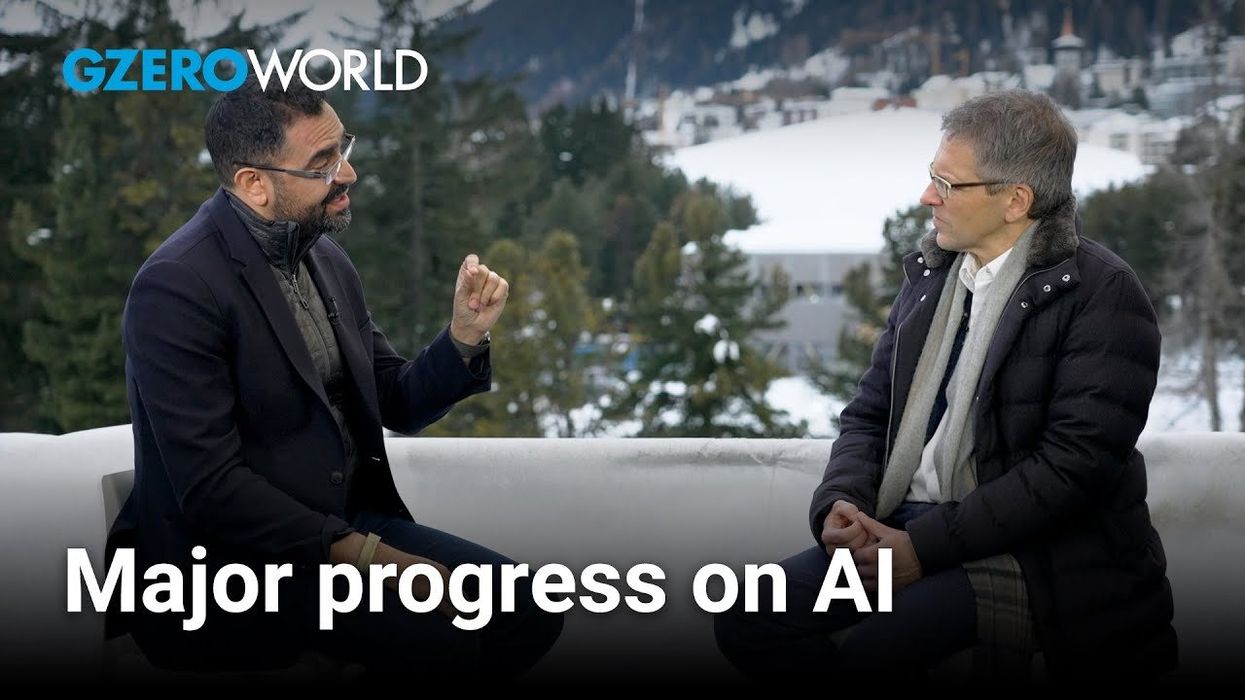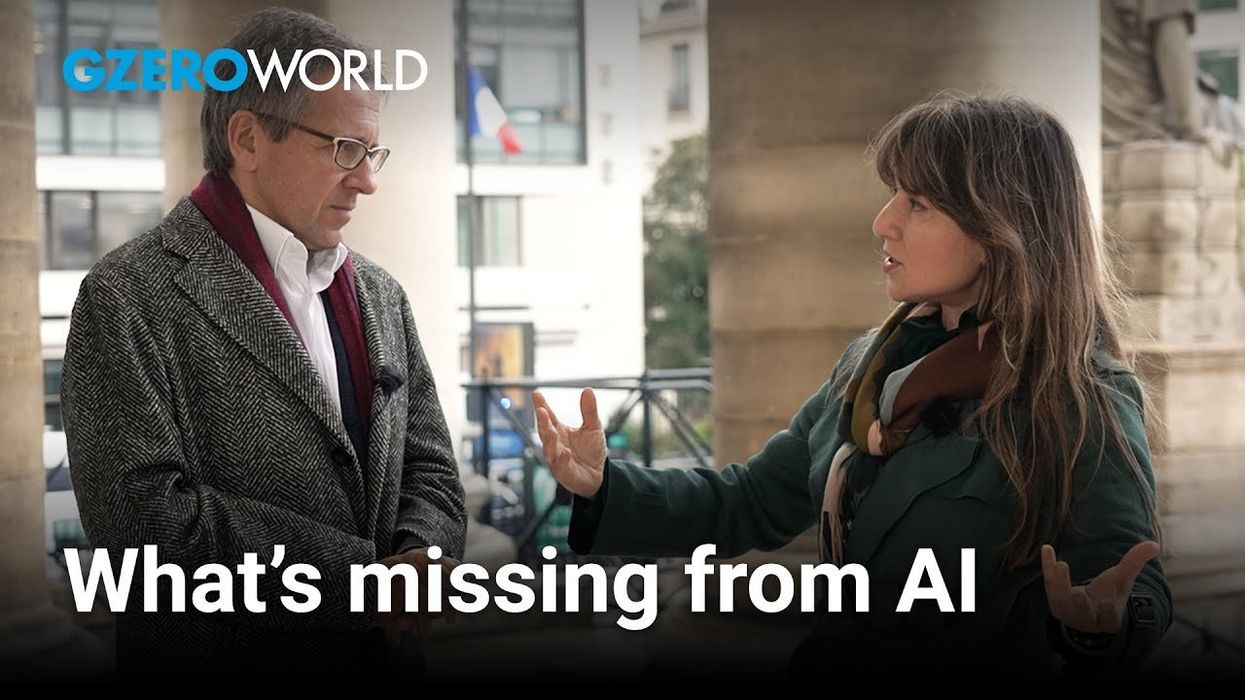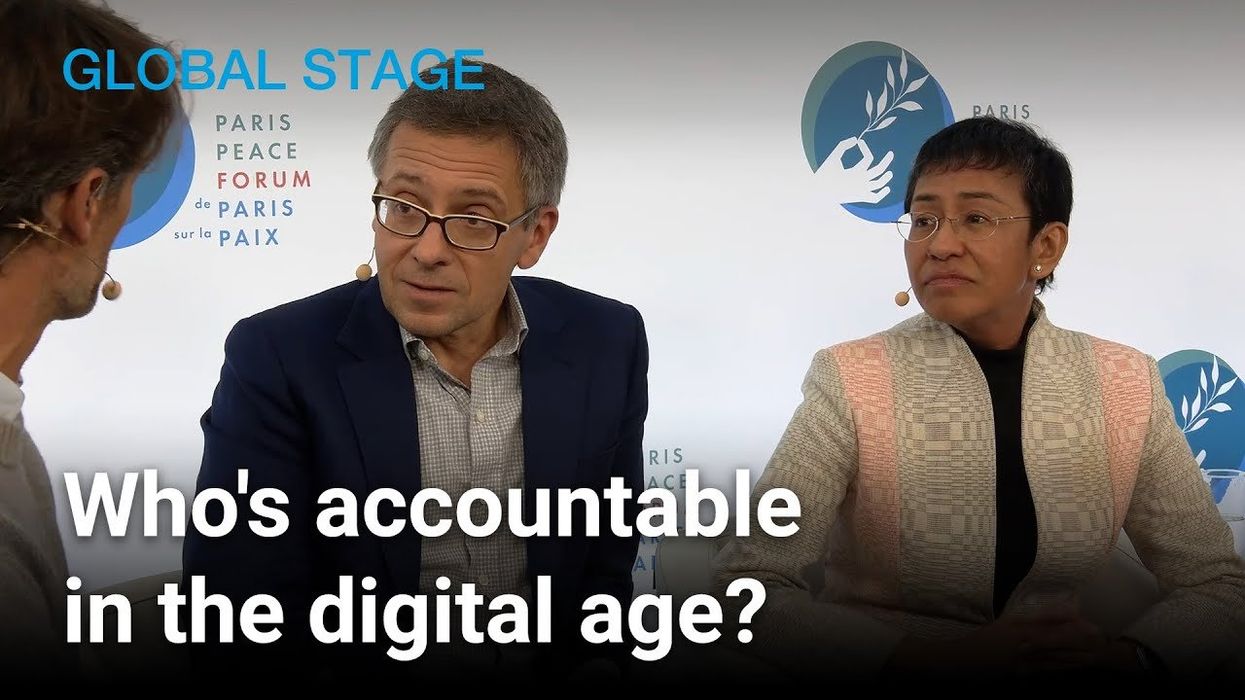AI For Good Summit
Skilling for the AI era: What do you need to succeed?
"AI isn’t one thing, it’s everything, everywhere, all at once,” says Naria Santa Lucia, General Manager of Microsoft Elevate. In this Global Stage conversation with GZERO’s Tony Maciulis at the 2025 AI for Good Summit in Geneva, Santa Lucia explores how generative AI is transforming not just the way we work—but how we prepare to work at all.
Jul 15, 2025




